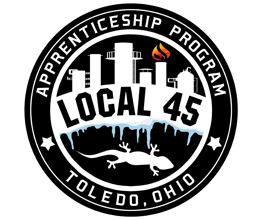What is Mechanical Insulation?
Mechanical insulation, also known as the “forgotten technology”, is thermal insulation used on piping, equipment, and all types of mechanical systems. It is defined to encompass all thermal, acoustical, and personnel safety requirements in:
- Mechanical piping and equipment, hot and cold applications
- Heating, Ventilating, and Air Conditioning (HVAC) applications
- Refrigeration and other low-temperature piping and equipment applications
It provides numerous benefits, including:
- Reducing energy costs
- Fire stopping
- Enhancing performance of mechanical systems
- Maximizing Return on Investment
- Reducing emissions and noise
- Preventing condensation
- Providing safety and personnel protection
- Improving appearance
- Increasing life expectancy of new mechanical equipment
Mechanical insulation in the BUILDING SECTOR is defined to include education, health care, institutional, retail and wholesale, office, food processing, light manufacturing, and similar applications. This is often referred to as the commercial sector.
Mechanical insulation in the INDUSTRIAL SECTOR is defined to include power, petrochemical, chemical, pulp and paper, refining, gas processing, brewery, heavy manufacturing, and similar applications.
Mechanical insulation is used on both high and low temperature applications and serves a number of functions, including protecting workers from burns on hot surfaces, lessening noise on air-handling systems (for occupant productivity and comfort in offices, for example), and maintaining the temperature of a substance in pipes or equipment to prevent more energy being used to re-heat or re-cool it when it reaches its destination
What Mechanical Insulators Do
The occupation of an insulator is to apply thermal insulation to mechanical equipment. All surfaces having low, medium or high temperatures
Fields we cover industrial, commercial, transportation and cryogenics:
- Industrial applies to all types of industries such as chemical process and petrochemical.
- The commercial field includes buildings, building services and refrigerated spaces.
- Transportation includes the insulation of trucks, trailers, railroad cars and ships.
- Cryogenics is the field of low temperature service, such as required by the liquefied gases.
The insulators today work with many types of materials. They insulate hot and cold piping, ductwork boilers and tanks, boilers, refrigeration units, furnaces, heat exchangers, many pipes, tanks, etc., found in powerhouses, refineries, aboard ships, in high-rise buildings, will be insulated by our mechanics for process control, for fire protection, for personnel protection or for sound reduction. After the insulation has been applied, protective covers, coatings and jacketing are also fabricated and installed.
Once apprenticeship is complete, tradespeople continue their education and will advance to journeyperson status.
Working Conditions
Insulators perform physically demanding and sometimes dangerous work, working at heights. As a result, workers must wear personal protective equipment Insulators work indoors and outdoors. They spend most of the workday on their feet either standing, bending, or kneeling. Insulation work if often dusty and dirty.
